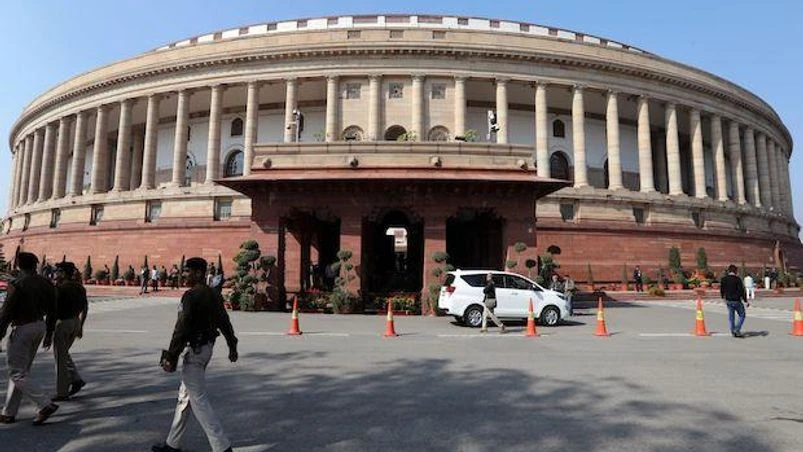 A look at the key Bills coming up in Parliament's winter session
A look at the key Bills coming up in Parliament's winter session
The government is set to have a busy winter session at the Parliament with cryptocurrency Bill, privatisation of two public sector banks and more on the agenda. This report takes a look at them
Krishna Veera Vanamali New Delhi
)
With the central bank halting monetary easing since mid-2020, citing high inflation, the onus is on Sitharaman to loosen the budget despite having meager resources to work with.
The domestic crypto market went into a tizzy on Tuesday night, soon after the news on the Bill came in. Several coins fell more than 20 per cent all the while when they were trading more or less flat in overseas markets. Cryptocurrencies on Indian exchanges are still trading at a discount to their global prices as investors continue to sell in panic.
If the summary of the bill as given by the government is anything to go by, it would seem like the end of cryptocurrencies is nearing us. This would dash the hopes of lakhs of investors who plunged into the space recently. The world’s largest cryptocurrency Bitcoin has gone from $18,000 to $56,000 in a year.
Industry estimates suggest that there are 1.5 to 2 crore crypto investors in India, with total holdings of around Rs 40,000 crore. However, the exact definition of a private cryptocurrency remains unclear at this moment. An inter-ministerial committee led by former Economic Affairs Secretary SC Garg in 2019 had defined private cryptocurrencies as anything that is not issued by the government. Whether this definition has evolved since then, will be known only when the bill is made public.
The Reserve Bank of India has time and again voiced “serious concerns” about cryptocurrencies and is set to launch its own digital version. Through the cryptocurrency legislation, a facilitative framework will be created for an official digital currency.
While the crypto bill is attracting the most attention, the government has for the first time listed a Bill to enable the privatisation of two public sector banks
Union finance minister Nirmala Sitharaman had announced the privatisation of two state-run banks while presenting the Union Budget for 2021-211. The government has not revealed the names of the banks, but media reports suggested these could be Indian Overseas Bank and Central Bank of India.
The shares of the two lenders rallied up to 20 per cent in Wednesday’s intra-day trade on back of heavy volumes. Indian Overseas Bank recently exited the RBI’s Prompt Corrective Action framework after six years. Central Bank of India is the last remaining lender that is facing restrictions under the framework. Their privatisation is crucial for the government to meet its disinvestment target of Rs 1.75 trillion for FY22.
The high-priority Farm Laws Repeal Bill, which proposes to scrap the three controversial farm laws passed by Parliament last year, is also part of the legislative agenda for the winter session.
The Parliament will also take up Electricity (Amendment) Bill 2021. It proposes to de-license power distribution allowing private players to compete with state-owned power distribution companies. The move would allow consumers to choose between power distribution companies. Union finance minister Nirmala Sitharaman had announced in the last Union budget that the government would bring a framework to allow consumers to choose between power distribution companies.
This Bill will reduce the cross-subsidy burden on industrial and commercial consumers. It will require consumers to pay unsubsidized power rates to discoms. And the state governments would pay subsidies directly to the consumer via Direct Benefit Transfer (DBT). The amendments have been opposed by states including Maharashtra, West Bengal, Tamil Nadu and Kerala.
The government will table 26 Bills in the Parliament during the winter session starting November 29. In the 20 working days, it hopes to clear all of them. This session will be crucial as several important bills seeking reform are on the table.
Watch Video
More From This Section
Don't miss the most important news and views of the day. Get them on our Telegram channel
First Published: Nov 25 2021 | 8:15 AM IST

